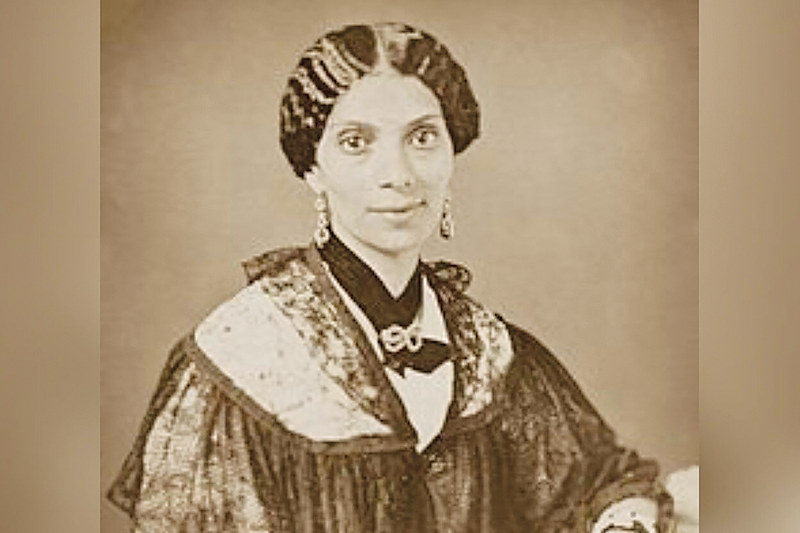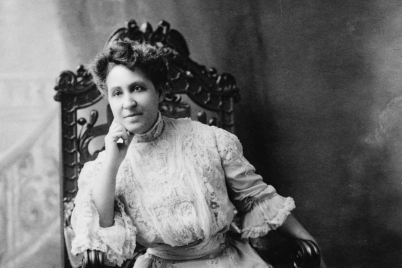Mary Smith Peake was the first teacher hired by the American Missionary Association [Hampton University Museum Archives, Public Domain]
BY KEISHA BELL | Visionary Brief
Long before Betty DeVos became the United States Secretary of Education, many complained about what they believed to be an intentional dummying down of students. These concerns were not limited to education but extended to the culture as a whole.
As the sensation of reality television grew, respectful behavior amongst strangers seemed to decrease. Instead of providing support for increased learning, priorities shifted to passing tests. Passing tests in a world that operates to dumb you down takes on a whole other meaning–that is, until the genius in you awakens.
Meet Mary Smith Peake. Peake, whose maiden name was Kelsey, was born a free black American in 1823. She died on February 22, 1862.
Peake was the first teacher hired by the American Missionary Association (AMA). She founded the Daughters of Zion, which was a women’s charitable organization whose mission was to assist the poor and the sick.
Peake, however, is best known for starting a school for the children of former slaves in 1861 under what became known as the Emancipation Oak Tree, which is designated a National Historic Landmark by the Department of Interior and one of the 10 Great Trees of the World by the National Geographic Society. It sits on the campus of Hampton University.
Peake’s mother, a free black woman, understood and truly believed in the value of receiving an education. Hence, she sent Peake from Norfolk, Va., to Alexandria (then the District of Columbia) to live with an aunt at the age of six to attend school. She remained there until she was 16.
Contrary to what many people think is true, black Americans were learning how to read and write English and were proactively taking sacrificial steps in securing such opportunities for their children during the antebellum period.
In an attempt to stop black and poor people from receiving an education, like in Virginia after the Nat Turner Rebellion in 1831, the U.S. Congress enacted a law prohibiting free people of color in D.C. from being educated. This, in effect, closed all schools for free blacks. In 1839, Peake returned home to Norfolk, Va., to live with her mother.
Understanding the bigger picture of her mother’s sacrifice, Peake took a risk of her own. After returning home, she secretly taught slaves and free blacks to read and write even though it was prohibited by law. She believed education was important to black people in particular.
After relocating to Hampton, Va., with her mother and stepfather, Peake continued to teach enslaved and free black people secretly. In fact, she was one of a number of black women whose teaching was officially sanctioned by the Union army as the United States entered the Civil War.
Initially, Peake financially supported herself mostly by dressmaking. During the American Civil War, however, the AMA paid her a salary and gave support as its first black teacher. It also provided her with a Brown Cottage.
On September 17, 1861, Peake began teaching under a large oak tree that later became known as the Emancipation Oak because it was where the community gathered to hear the first Southern reading of President Abraham Lincoln’s Emancipation Proclamation. Peake taught black Americans–children and adults–both day and night.
Every student was eager to learn, and Peake continued to teach even after she became seriously ill. She died at a young age, but the legacy she left continues.

Keisha Bell
Today’s etiquette does not allow for an outright prohibition of all Americans of color and or persons who are poor from receiving a free, quality elementary and secondary education. Underfunding public education, instead, elicits the same result — intentionally dumbing down a nation.
Is the genius in you awake? She gave her life to give you her lesson plan. What will you do with it?
Keisha Bell is an attorney, author, and public servant.








